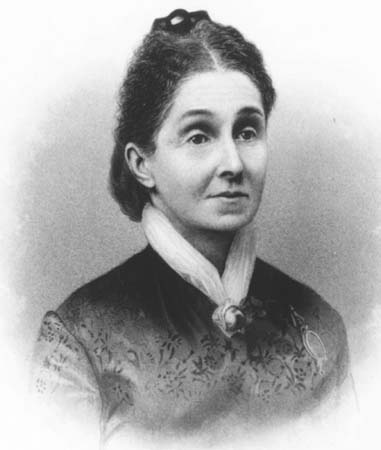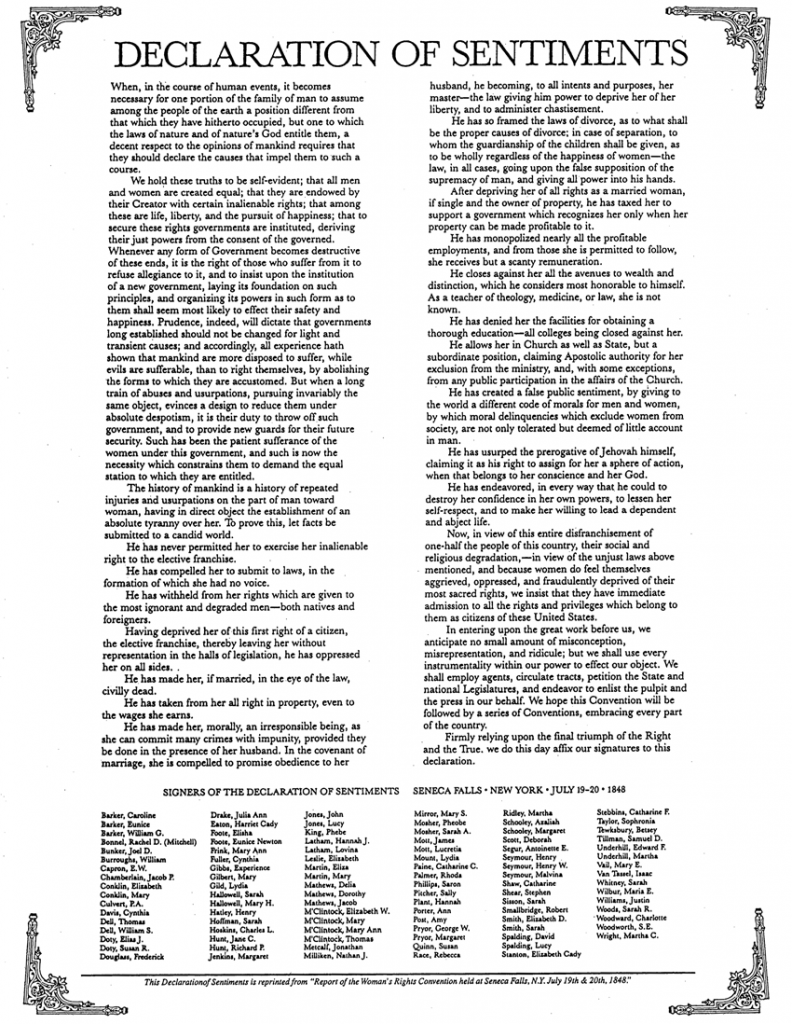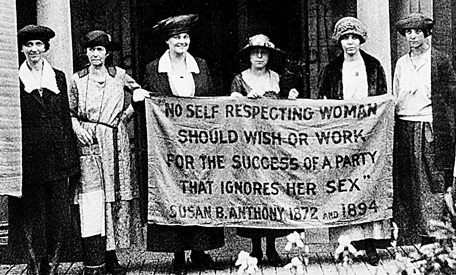This is Virginia Louise Minor, who attempted to vote in an election. Her case wound its way all the way to the Supreme Court, which held in Minor v. Happersett that voting was not a privilege or immunity of citizenship.
This is the 1848 Declaration of Sentiments, authored by Elizabeth Cady Stanton, and other leading suffragists at the Seneca Falls Convention in July of 1848. Relevant to our discussions are the provisions concerning coverture, and the inability of women to own, use, and dispose of property. Among the other “”injuries and usurpations on the part of man toward woman”:
- He has made her, if married, in the eye of the law, civilly dead.
- He has taken from her all right in property, even to the wages she earns.
- He has so framed the laws of divorce, as to what shall be the proper causes of divorce, in case of separation, to whom the guardianship of the children shall be given; as to be wholly regardless of the happiness of the women—the law, in all cases, going upon a false supposition of the supremacy of a man, and giving all power into his hands.
The 19th Amendment, which prevented states from denying the franchise to woman, was ratified on August 18, 1920.


